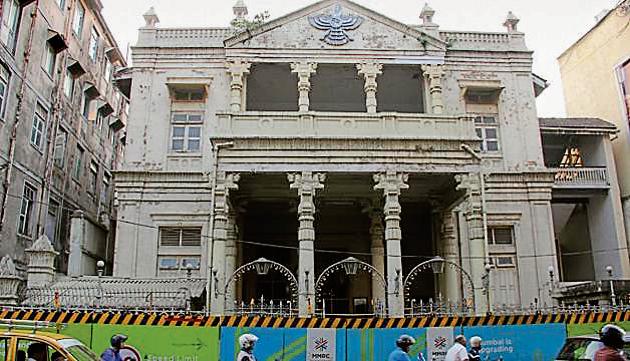SC allows MMRCL to continue Metro-3 work below Mumbai fire temples
The court also directed MMRCL to take adequate precautions during construction and file a progress report before it by January 4, the next date of hearing.
The Supreme Court (SC) on Monday allowed the Mumbai Metro Rail Corporation Limited (MMRCL) to go ahead with the tunnelling and construction work for Metro-3, underneath the two Parsi temples or Atash Behrams at Kalbadevi. The SC stated “it cannot stop the construction of a project like this which benefits people”.

Relieving MMRCL of its suo motu obligation of stopping construction, pending the matter at the top court, a bench of Justice UU Lalit and Justice S Reddy said, “Taking a total view of the matter, we are not inclined to stop the infrastructure project. Making another alignment is impossible at this stage.”
The court also directed MMRCL to take adequate precautions during construction and file a progress report before it by January 4, the next date of hearing.
The SC order comes on a petition filed by four members of the Parsi community, who asserted that tunnelling and construction for the underground Metro-3 would damage the structural stability of the heritage Atash Behrams. Asserting that the construction work would destroy the sacred fire in the temples, they demanded that the work be stopped on religious grounds.
Rejecting their demand, the bench said, “Two high priests of your community have said construction will not impact the fire temple or the religious practices of your community. Moreover, MMRCL is maintaining distance from the wells in the temples which could be contaminated.”
Justice UU Lalit said the Metro project started seven years ago when objections were invited. “You did not say anything then. You come from a community that is well educated and it could not have escaped the attention of your people that the project will affect fire temples.”
Defending the underground Metro project, Attorney General for India, KK Venugopal argued, that “the petitioners did not have support of the Parsi community... For seven years, they kept quiet. Two high priests have contradicted what the petitioners have said.” He further added: “No evidence has been produced by the petitioners to support their argument on belief and customs that the fire in the temple has to be in touch with the core of the earth at all times.”
Interpreting the right to religion as granted under the Constitution, Venugopal submitted that “the case is based on the premise that religious rights are violated. But this right is subject to public order, morality and health. Construction of the Metro will reduce pollution and emission of green-house gases. Health and convenience of people will be addressed by the project.” Appearing for the petitioners, advocate Zerick Dastur submitted that “Never before in 1,200 years of history, have we requested anything from the country. But now, an issue has arisen. The Metro will damage two heritage buildings which are 188 and 122 years old.”
The decision hasn’t gone down well with the Parsi community. “Just because we are a minority community, our sentiments aren’t taken into consideration,” said Pervez Cooper, a Colaba resident. Jamshed Sukhadwala, one of the petitioners, said apart from the SC, the community members will also be monitoring the work to ensure there is no damage caused to their religious structures. “JN Petit Library and Wadiaji building developed cracks when the Metro tunnelling work was done, though the Metro authorities will deny that.”
Viraf Kapadia, trustee of Bhikha Behram Well, said, “There are only two Sensia [a group within Parsis] Atash Behrams that we have, and we would lose them both because of the Metro.”



